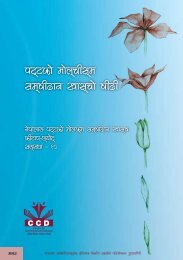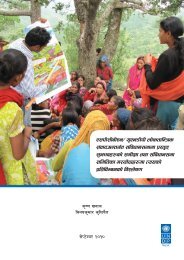- Page 1:
The InterimConstitution ofNepal, 20
- Page 4 and 5:
CONTENTSPART Iljifo ;"rLefu !About
- Page 6 and 7:
++g]kfnsf] cGtl/d ;+ljwfg, @)^#klxn
- Page 8 and 9:
g]kfnsf] cGtl/d ;+ljwfg, @)^#klxnf]
- Page 10 and 11:
{g]kfnsf] cGtl/d ;+ljwfg, @)^#klxnf
- Page 12 and 13:
g]kfnsf] cGtl/d ;+ljwfg, @)^#klxnf]
- Page 14 and 15:
g]kfnsf] cGtl/d ;+ljwfg, @)^#klxnf]
- Page 16 and 17:
g]kfnsf] cGtl/d ;+ljwfg, @)^#klxnf]
- Page 18 and 19:
g]kfnsf] cGtl/d ;+ljwfg, @)^#klxnf]
- Page 20 and 21:
]g]kfnsf] cGtl/d ;+ljwfg, @)^#klxnf
- Page 22 and 23:
g]kfnsf] cGtl/d ;+ljwfg, @)^#klxnf]
- Page 24 and 25:
g]kfnsf] cGtl/d ;+ljwfg, @)^#klxnf]
- Page 26 and 27:
]{{g]kfnsf] cGtl/d ;+ljwfg, @)^#klx
- Page 28 and 29:
{g]kfnsf] cGtl/d ;+ljwfg, @)^#klxnf
- Page 30 and 31:
}g]kfnsf] cGtl/d ;+ljwfg, @)^#klxnf
- Page 32 and 33:
g]kfnsf] cGtl/d ;+ljwfg, @)^#klxnf]
- Page 34 and 35:
+g]kfnsf] cGtl/d ;+ljwfg, @)^#klxnf
- Page 36 and 37:
g]kfnsf] cGtl/d ;+ljwfg, @)^#klxnf]
- Page 38 and 39:
g]kfnsf] cGtl/d ;+ljwfg, @)^#klxnf]
- Page 40 and 41:
g]kfnsf] cGtl/d;+ljwfg, @)^#klxnf]b
- Page 42 and 43:
g]kfnsf] cGtl/d ;+ljwfg, @)^#klxnf]
- Page 44 and 45:
g]kfnsf] cGtl/d ;+ljwfg, @)^#klxnf]
- Page 46 and 47:
g]kfnsf] cGtl/d ;+ljwfg, @)^#klxnf]
- Page 48 and 49:
g]kfnsf] cGtl/d ;+ljwfg, @)^#klxnf]
- Page 50 and 51:
g]kfnsf] cGtl/d ;+ljwfg, @)^#klxnf]
- Page 52 and 53:
g]kfnsf] cGtl/d ;+ljwfg, @)^#klxnf]
- Page 54 and 55:
g]kfnsf] cGtl/d ;+ljwfg, @)^#klxnf]
- Page 56 and 57:
{g]kfnsf] cGtl/d ;+ljwfg, @)^#klxnf
- Page 58 and 59:
g]kfnsf] cGtl/d ;+ljwfg, @)^#klxnf]
- Page 60 and 61:
g]kfnsf] cGtl/d ;+ljwfg, @)^#klxnf]
- Page 62 and 63:
g]kfnsf] cGtl/d ;+ljwfg, @)^#klxnf]
- Page 64 and 65:
g]kfnsf] cGtl/d ;+ljwfg, @)^#klxnf]
- Page 66 and 67:
g]kfnsf] cGtl/d ;+ljwfg, @)^#klxnf]
- Page 68 and 69:
g]kfnsf] cGtl/d ;+ljwfg, @)^#klxnf]
- Page 70 and 71:
g]kfnsf] cGtl/d ;+ljwfg, @)^#klxnf]
- Page 72 and 73:
{g]kfnsf] cGtl/d ;+ljwfg, @)^#klxnf
- Page 74 and 75:
g]kfnsf] cGtl/d ;+ljwfg, @)^#klxnf]
- Page 76 and 77:
g]kfnsf] cGtl/d ;+ljwfg, @)^#klxnf]
- Page 78 and 79:
{g]kfnsf] cGtl/d ;+ljwfg, @)^#klxnf
- Page 80 and 81:
g]kfnsf] cGtl/d ;+ljwfg, @)^#klxnf]
- Page 82 and 83:
g]kfnsf] cGtl/d ;+ljwfg, @)^#klxnf]
- Page 84 and 85:
{g]kfnsf] cGtl/d ;+ljwfg, @)^#klxnf
- Page 86 and 87:
{g]kfnsf] cGtl/d ;+ljwfg, @)^#klxnf
- Page 88 and 89:
g]kfnsf] cGtl/d ;+ljwfg, @)^#klxnf]
- Page 90 and 91:
g]kfnsf] cGtl/d ;+ljwfg, @)^#klxnf]
- Page 92 and 93:
g]kfnsf] cGtl/d ;+ljwfg, @)^#klxnf]
- Page 94 and 95:
g]kfnsf] cGtl/d ;+ljwfg, @)^#klxnf]
- Page 96 and 97:
g]kfnsf] cGtl/d ;+ljwfg, @)^#klxnf]
- Page 98 and 99:
g]kfnsf] cGtl/d ;+ljwfg, @)^#klxnf]
- Page 100 and 101:
g]kfnsf] cGtl/d ;+ljwfg, @)^#klxnf]
- Page 102 and 103:
g]kfnsf] cGtl/d ;+ljwfg, @)^#klxnf]
- Page 104 and 105:
g]kfnsf] cGtl/d ;+ljwfg, @)^#klxnf]
- Page 106 and 107:
g]kfnsf] cGtl/d ;+ljwfg, @)^#klxnf]
- Page 108 and 109:
g]kfnsf] cGtl/d ;+ljwfg, @)^#klxnf]
- Page 110 and 111: g]kfnsf] cGtl/d ;+ljwfg, @)^#klxnf]
- Page 112 and 113: g]kfnsf] cGtl/d ;+ljwfg, @)^#klxnf]
- Page 114 and 115: g]kfnsf] cGtl/d ;+ljwfg, @)^#klxnf]
- Page 116 and 117: g]kfnsf] cGtl/d ;+ljwfg, @)^#klxnf]
- Page 118 and 119: g]kfnsf] cGtl/d ;+ljwfg, @)^#klxnf]
- Page 120 and 121: g]kfnsf] cGtl/d ;+ljwfg, @)^#klxnf]
- Page 122 and 123: g]kfnsf] cGtl/d ;+ljwfg, @)^#klxnf]
- Page 124 and 125: g]kfnsf] cGtl/d ;+ljwfg, @)^#klxnf]
- Page 126 and 127: g]kfnsf] cGtl/d ;+ljwfg, @)^#klxnf]
- Page 128 and 129: g]kfnsf] cGtl/d ;+ljwfg, @)^#klxnf]
- Page 130 and 131: g]kfnsf] cGtl/d ;+ljwfg, @)^#klxnf]
- Page 132 and 133: g]kfnsf] cGtl/d ;+ljwfg, @)^#klxnf]
- Page 134 and 135: ]g]kfnsf] cGtl/d ;+ljwfg, @)^#klxnf
- Page 136 and 137: g]kfnsf] cGtl/d ;+ljwfg, @)^#klxnf]
- Page 138 and 139: g]kfnsf] cGtl/d ;+ljwfg, @)^#klxnf]
- Page 140 and 141: g]kfnsf] cGtl/d ;+ljwfg, @)^#klxnf]
- Page 142 and 143: g]kfnsf] cGtl/d ;+ljwfg, @)^#klxnf]
- Page 144 and 145: g]kfnsf] cGtl/d ;+ljwfg, @)^#klxnf]
- Page 146 and 147: {g]kfnsf] cGtl/d ;+ljwfg, @)^#klxnf
- Page 148 and 149: g]kfnsf] cGtl/d ;+ljwfg, @)^#klxnf]
- Page 150 and 151: g]kfnsf] cGtl/d ;+ljwfg, @)^#klxnf]
- Page 152 and 153: g]kfnsf] cGtl/d ;+ljwfg, @)^#klxnf]
- Page 154 and 155: g]kfnsf] cGtl/d ;+ljwfg, @)^#klxnf]
- Page 156 and 157: g]kfnsf] cGtl/d ;+ljwfg, @)^#klxnf]
- Page 158 and 159: g]kfnsf] cGtl/d ;+ljwfg, @)^#klxnf]
- Page 162 and 163: {g]kfnsf] cGtl/d ;+ljwfg, @)^#klxnf
- Page 164 and 165: g]kfnsf] cGtl/d ;+ljwfg, @)^#klxnf]
- Page 166 and 167: g]kfnsf] cGtl/d ;+ljwfg, @)^#klxnf]
- Page 168 and 169: g]kfnsf] cGtl/d ;+ljwfg, @)^#klxnf]
- Page 170 and 171: {g]kfnsf] cGtl/d ;+ljwfg, @)^#klxnf
- Page 172 and 173: g]kfnsf] cGtl/d ;+ljwfg, @)^#klxnf]
- Page 174 and 175: g]kfnsf] cGtl/d ;+ljwfg, @)^#klxnf]
- Page 176 and 177: g]kfnsf] cGtl/d ;+ljwfg, @)^#klxnf]
- Page 178 and 179: g]kfnsf] cGtl/d ;+ljwfg, @)^#klxnf]
- Page 180 and 181: g]kfnsf] cGtl/d ;+ljwfg, @)^#klxnf]
- Page 182 and 183: g]kfnsf] cGtl/d ;+ljwfg, @)^#klxnf]
- Page 184 and 185: g]kfnsf] cGtl/d ;+ljwfg, @)^#klxnf]
- Page 186 and 187: g]kfnsf] cGtl/d ;+ljwfg, @)^#klxnf]
- Page 188 and 189: g]kfnsf] cGtl/d ;+ljwfg, @)^#klxnf]
- Page 190 and 191: g]kfnsf] cGtl/d ;+ljwfg, @)^#klxnf]
- Page 192 and 193: g]kfnsf] cGtl/d ;+ljwfg, @)^#klxnf]
- Page 194 and 195: {g]kfnsf] cGtl/d ;+ljwfg, @)^#klxnf
- Page 196 and 197: g]kfnsf] cGtl/d ;+ljwfg, @)^#klxnf]
- Page 198 and 199: {g]kfnsf] cGtl/d ;+ljwfg, @)^#klxnf
- Page 200 and 201: g]kfnsf] cGtl/d ;+ljwfg, @)^#klxnf]
- Page 202 and 203: g]kfnsf] cGtl/d ;+ljwfg, @)^#klxnf]
- Page 204 and 205: g]kfnsf] cGtl/d ;+ljwfg, @)^#klxnf]
- Page 206 and 207: g]kfnsf] cGtl/d ;+ljwfg, @)^#klxnf]
- Page 208 and 209: g]kfnsf] cGtl/d ;+ljwfg, @)^#klxnf]
- Page 210 and 211:
'g]kfnsf] cGtl/d ;+ljwfg, @)^#klxnf
- Page 212 and 213:
{g]kfnsf] cGtl/d ;+ljwfg, @)^#klxnf
- Page 214 and 215:
g]kfnsf] cGtl/d ;+ljwfg, @)^#klxnf]
- Page 216 and 217:
g]kfnsf] cGtl/d ;+ljwfg, @)^#klxnf]
- Page 218 and 219:
g]kfnsf] cGtl/d ;+ljwfg, @)^#klxnf]
- Page 220 and 221:
g]kfnsf] cGtl/d ;+ljwfg, @)^#klxnf]
- Page 222 and 223:
g]kfnsf] cGtl/d ;+ljwfg, @)^#klxnf]
- Page 224 and 225:
]g]kfnsf] cGtl/d ;+ljwfg, @)^#klxnf
- Page 226 and 227:
g]kfnsf] cGtl/d ;+ljwfg, @)^#klxnf]
- Page 228 and 229:
g]kfnsf] cGtl/d ;+ljwfg, @)^#klxnf]
- Page 230 and 231:
g]kfnsf] cGtl/d ;+ljwfg, @)^#klxnf]
- Page 232 and 233:
g]kfnsf] cGtl/d ;+ljwfg, @)^#klxnf]
- Page 234 and 235:
g]kfnsf] cGtl/d ;+ljwfg, @)^#klxnf]
- Page 236 and 237:
g]kfnsf] cGtl/d ;+ljwfg, @)^#klxnf]
- Page 238 and 239:
g]kfnsf] cGtl/d ;+ljwfg, @)^#klxnf]
- Page 240 and 241:
g]kfnsf] cGtl/d ;+ljwfg, @)^#klxnf]
- Page 242 and 243:
g]kfnsf] cGtl/d ;+ljwfg, @)^#klxnf]
- Page 244 and 245:
g]kfnsf] cGtl/d ;+ljwfg, @)^#klxnf]
- Page 246 and 247:
g]kfnsf] cGtl/d ;+ljwfg, @)^#klxnf]
- Page 248 and 249:
g]kfnsf] cGtl/d ;+ljwfg, @)^#klxnf]
- Page 250 and 251:
g]kfnsf] cGtl/d ;+ljwfg, @)^#klxnf]
- Page 252 and 253:
g]kfnsf] cGtl/d ;+ljwfg, @)^#klxnf]
- Page 254 and 255:
g]kfnsf] cGtl/d ;+ljwfg, @)^#klxnf]
- Page 256 and 257:
g]kfnsf] cGtl/d ;+ljwfg, @)^#klxnf]
- Page 258 and 259:
g]kfnsf] cGtl/d ;+ljwfg, @)^#klxnf]
- Page 260 and 261:
g]kfnsf] cGtl/d ;+ljwfg, @)^#klxnf]
- Page 262 and 263:
g]kfnsf] cGtl/d ;+ljwfg, @)^#klxnf]
- Page 264 and 265:
g]kfnsf] cGtl/d ;+ljwfg, @)^#klxnf]
- Page 266 and 267:
g]kfnsf] cGtl/d ;+ljwfg, @)^#klxnf]
- Page 268 and 269:
g]kfnsf] cGtl/d ;+ljwfg, @)^#klxnf]
- Page 270 and 271:
g]kfnsf] cGtl/d ;+ljwfg, @)^#klxnf]
- Page 272 and 273:
g]kfnsf] cGtl/d ;+ljwfg, @)^#klxnf]
- Page 274 and 275:
g]kfnsf] cGtl/d ;+ljwfg, @)^#klxnf]
- Page 276 and 277:
g]kfnsf] cGtl/d ;+ljwfg, @)^#klxnf]
- Page 278 and 279:
]g]kfnsf] cGtl/d ;+ljwfg, @)^#klxnf
- Page 280 and 281:
g]kfnsf] cGtl/d ;+ljwfg, @)^#klxnf]
- Page 282 and 283:
g]kfnsf] cGtl/d ;+ljwfg, @)^#klxnf]
- Page 284 and 285:
g]kfnsf] cGtl/d ;+ljwfg, @)^#klxnf]
- Page 286 and 287:
{g]kfnsf] cGtl/d ;+ljwfg, @)^#klxnf
- Page 288 and 289:
g]kfnsf] cGtl/d ;+ljwfg, @)^#klxnf]
- Page 290 and 291:
g]kfnsf] cGtl/d ;+ljwfg, @)^#klxnf]
- Page 292 and 293:
g]kfnsf] cGtl/d ;+ljwfg, @)^#klxnf]
- Page 294 and 295:
g]kfnsf] cGtl/d ;+ljwfg, @)^#klxnf]
- Page 296 and 297:
g]kfnsf] cGtl/d ;+ljwfg, @)^#klxnf]
- Page 298 and 299:
g]kfnsf] cGtl/d ;+ljwfg, @)^#klxnf]
- Page 300 and 301:
g]kfnsf] cGtl/d ;+ljwfg, @)^#klxnf]
- Page 302 and 303:
{g]kfnsf] cGtl/d ;+ljwfg, @)^#klxnf
- Page 304 and 305:
g]kfnsf] cGtl/d ;+ljwfg, @)^#klxnf]
- Page 306 and 307:
{g]kfnsf] cGtl/d ;+ljwfg, @)^#klxnf
- Page 308 and 309:
g]kfnsf] cGtl/d ;+ljwfg, @)^#klxnf]
- Page 310 and 311:
g]kfnsf] cGtl/d ;+ljwfg, @)^#klxnf]
- Page 312 and 313:
g]kfnsf] cGtl/d ;+ljwfg, @)^#klxnf]
- Page 314 and 315:
g]kfnsf] cGtl/d ;+ljwfg, @)^#klxnf]
- Page 316 and 317:
g]kfnsf] cGtl/d ;+ljwfg, @)^#klxnf]
- Page 318 and 319:
g]kfnsf] cGtl/d ;+ljwfg, @)^#klxnf]
- Page 320 and 321:
g]kfnsf] cGtl/d ;+ljwfg, @)^#klxnf]
- Page 322 and 323:
g]kfnsf] cGtl/d ;+ljwfg, @)^#klxnf]
- Page 324 and 325:
g]kfnsf] cGtl/d ;+ljwfg, @)^#klxnf]
- Page 326 and 327:
{g]kfnsf] cGtl/d ;+ljwfg, @)^#klxnf
- Page 328 and 329:
g]kfnsf] cGtl/d ;+ljwfg, @)^#klxnf]
- Page 330 and 331:
{g]kfnsf] cGtl/d ;+ljwfg, @)^#klxnf
- Page 332 and 333:
g]kfnsf] cGtl/d ;+ljwfg, @)^#klxnf]
- Page 334 and 335:
g]kfnsf] cGtl/d ;+ljwfg, @)^#klxnf]
- Page 336 and 337:
{g]kfnsf] cGtl/d ;+ljwfg, @)^#klxnf
- Page 338 and 339:
g]kfnsf] cGtl/d ;+ljwfg, @)^#klxnf]




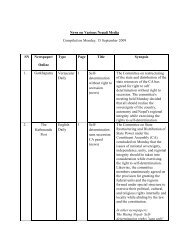

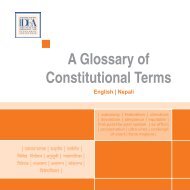
![g]k fnsf blntx? / gofF ;+l jwfg](https://img.yumpu.com/49483602/1/184x260/gk-fnsf-blntx-goff-l-jwfg.jpg?quality=85)
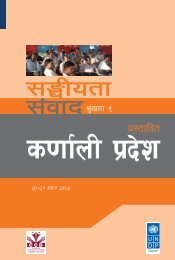
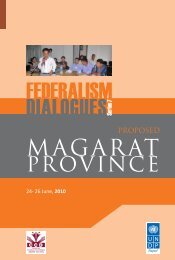
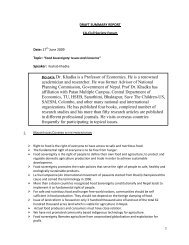
![+ljwfg;ef, /fHosf]k'g](https://img.yumpu.com/41604075/1/184x260/-ljwfgef-fhosfkg.jpg?quality=85)
